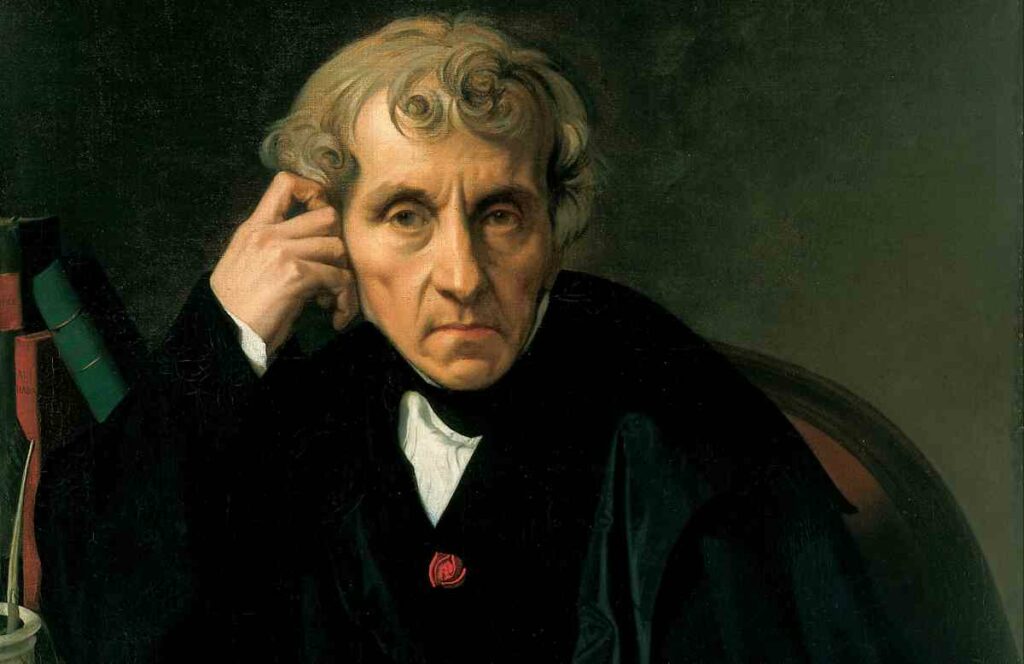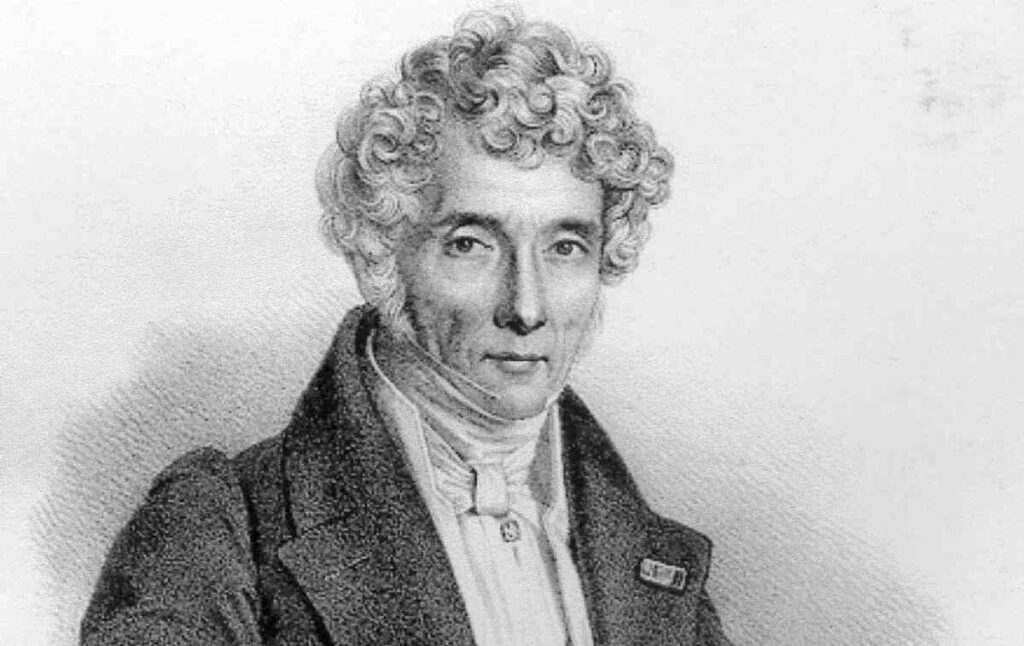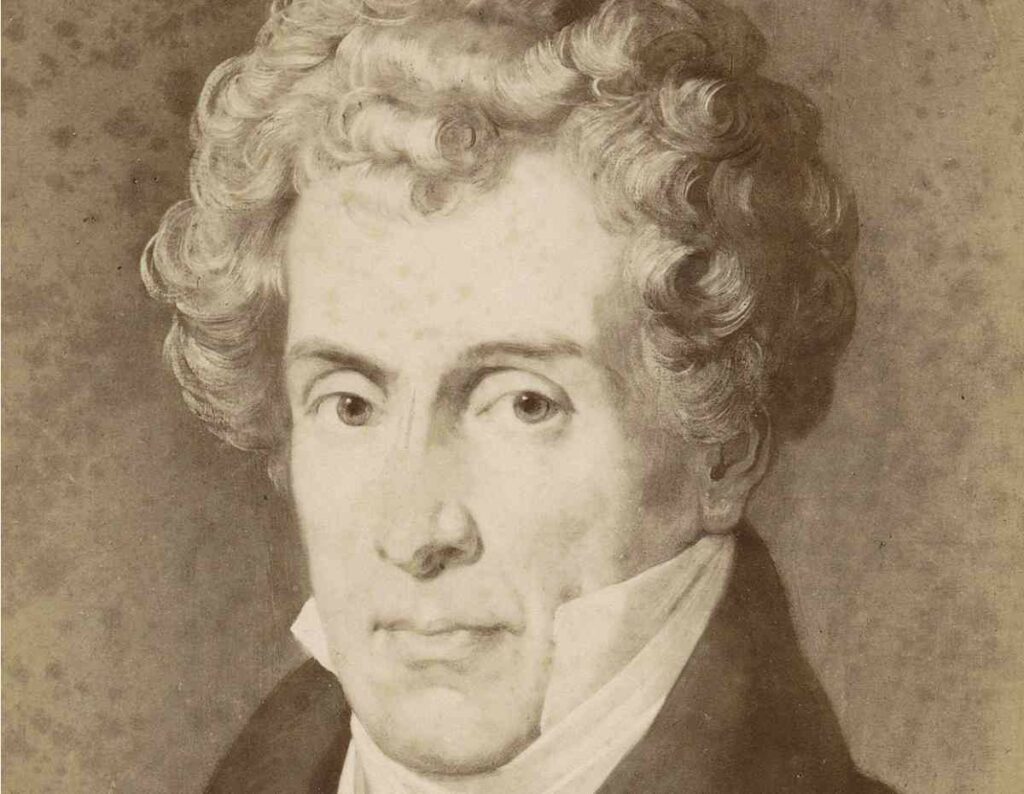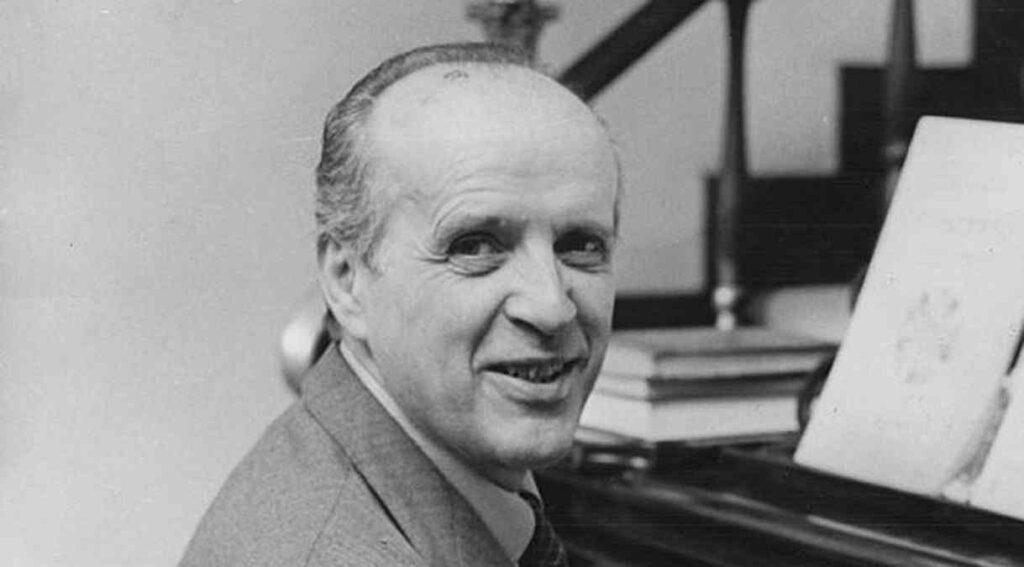Luigi Cherubini is an Italian composer, musician and teacher. Luigi Cherubini is the main representative of the rescue opera genre. The maestro spent most of his life in France, but he still considers Florence his homeland.
Salvation opera is a genre of heroic opera. For musical works of the presented genre, dramatic expressiveness, the desire for the unity of the composition, the combination of heroic and genre elements are included.
The maestro's musical works were admired not only by French dignitaries, but also by honored composers. Luigi's operas were not alien to ordinary people. In his works, he raised the social and political problems of that time.

Childhood and youth
The maestro is from Florence. He was lucky to be born into a creative family. Father and mother came to genuine delight from objects of fine art. The family skillfully appreciates folk art and the beauty of their native town.
The head of the family received a musical education. He worked as an accompanist at the Pergola Theatre. Luigi Cherubini can safely be called lucky. Sometimes the father took his son to work, where he had the opportunity to observe the actions that take place on stage.
From early childhood, Luigi studied musical notation under the guidance of his father and guests entering the house. Parents noticed that the son was endowed with a special talent. Cherubini effortlessly mastered several musical instruments. He had a good ear and a penchant for composing pieces of music.
Wishing for a better life for their son, his parents sent him to Bologna to Giuseppe Sarti. The latter already had the status of a renowned composer and conductor. Luigi became friends with the maestro, and with his permission attended masses in cathedrals. The young man was also given access to the rich Sarti library.
He soon put the knowledge he gained into practice. The maestro set about writing musical works for several instruments. Then he encroached on the opera. Soon he presented the Ilgiocatore Intermezzo to the public.

The creative path of the composer Luigi Cherubini
In 1779, the brilliant opera Quint Fabius premiered. The work was staged in one of the theaters in France. Luigi, who had barely reached adulthood, unexpectedly for acquaintances and relatives, achieved success and first popularity. For the work done, the novice composer received a significant fee.
He began to receive orders from Europe. Luigi had a chance to become famous all over the world. At the invitation of George III, he moved to England. In the palace of the monarch, he lived for several months. At this time, he enriched the musical piggy bank with several small works.
He made an undeniable contribution to the development of Italian opera of that time. On the stage of Italian theaters, directors staged "opera seria", which were in demand in elite circles. Among the popular musical works of 1785-1788 are the operas Demetrius and Iphigenia in Aulis.
Composer's move to France
Soon he had the opportunity to live in France for a while. He took advantage of his position and lived in this colorful country until the age of 55. During this period of time, he is fond of the ideas of the Great Revolution.
Luigi spent a lot of time writing hymns and marches. He also composes plays, the purpose of which is to involve the maximum number of people in the socio-political problem. From the pen of the maestro comes the “Hymn to the Pantheon” and “Hymn to the Brotherhood”. The musical compositions perfectly illustrate the thoughts of the French during the Great Revolution.
Luigi departed from the canons of Italian music. The maestro can be safely called an innovator, since he is the “father” of such a genre as “opera-rescue”. In new musical works, he actively uses the methods that appeared after the “Glukovsky” musical reforms. Eliza, Lodoiska, Punishment and The Prisoner - these and a host of other compositions are distinguished by clarity, simple parts and completeness of forms.
Soon Luigi introduces the audience to the work "Medea". The opera was staged on the stage of the French theater Feydo. The audience warmly accepted the composer's creation. They singled out recitatives and arias, which they entrusted to perform to the brilliant tenor Pierre Gaveau.

A new stage in the life of maestro Luigi Cherubini
In 1875, Luigi and his colleagues founded the Paris Conservatoire. He rose to the rank of professor, showing himself as a true professional in his field.
The maestro taught Jacques Francois Fromental Halévy. The student, under the guidance of a talented composer, wrote a number of works that brought him success and popularity. Jacques learned the basics of composition from Cherubini's manuals.
When Napoleon was at the head of France, Luigi managed to maintain his hard-earned status. However, they say that the new commander-in-chief frankly did not like the work of Cherubini. The maestro had to spend a lot of time to promote the works of Pygmalion and Abenseraghi to the masses.
With the onset of the Bourbon Restoration, the maestro suffered greatly. He could not write large pieces of music, so he was content with writing small pieces. The mass for the coronation of Louis XVIII and the concert overture of 1815 were appreciated by the local public.
Today Luigi's name is associated with the Requiem in C Minor. The maestro dedicated the composition to Louis Capeta, the last monarch of the “old order. The composer was unable to ignore the theme of the majestic prayer "Ave Maria".
Further, the maestro's musical piggy bank was replenished with another immortal opera. We are talking about the musical work of the Marquis de Brevilliers. The presentation of the opera made a stunning impression on the French public. Luigi managed to double his popularity.
Details of the personal life of the maestro
Rumor has it that the composer was fond of conspiracy theories. There are facts that he was a member of the Masonic lodge. This obliged the maestro to exist in a society of secretive men. Perhaps it is for this reason that biographers have not yet been able to find any information about his personal life Luigi.
Interesting facts about the composer
- He wrote three dozen operas. Today, on the stage of theaters, you can most often enjoy the production of the works "Medea" and "Vodovoz".
- The maestro's popularity peaked in the 1810s.
- Cherubini's last opera, Ali Baba (Ali-Baba ou Les quarante voleurs), was released in 1833.
- The musician's work became transitional from classicism to romanticism.
- When Beethoven was asked in 1818 who he considered to be the greatest contemporary maestro, he replied "Cherubini".
Death of Maestro Luigi Cherubini
He spent the last ten years as head of the Paris Conservatoire. He also took up writing the treatise Course in Counterpoint and Fugue. Luigi spent a lot of time studying with his pupils.
In the last years of his life, he lived in a house in the center of Paris, so after his death he was taken to the Pere Lachaise cemetery. He died on March 15, 1842. At the funeral of the great composer, one of Cherubini's works was performed.



